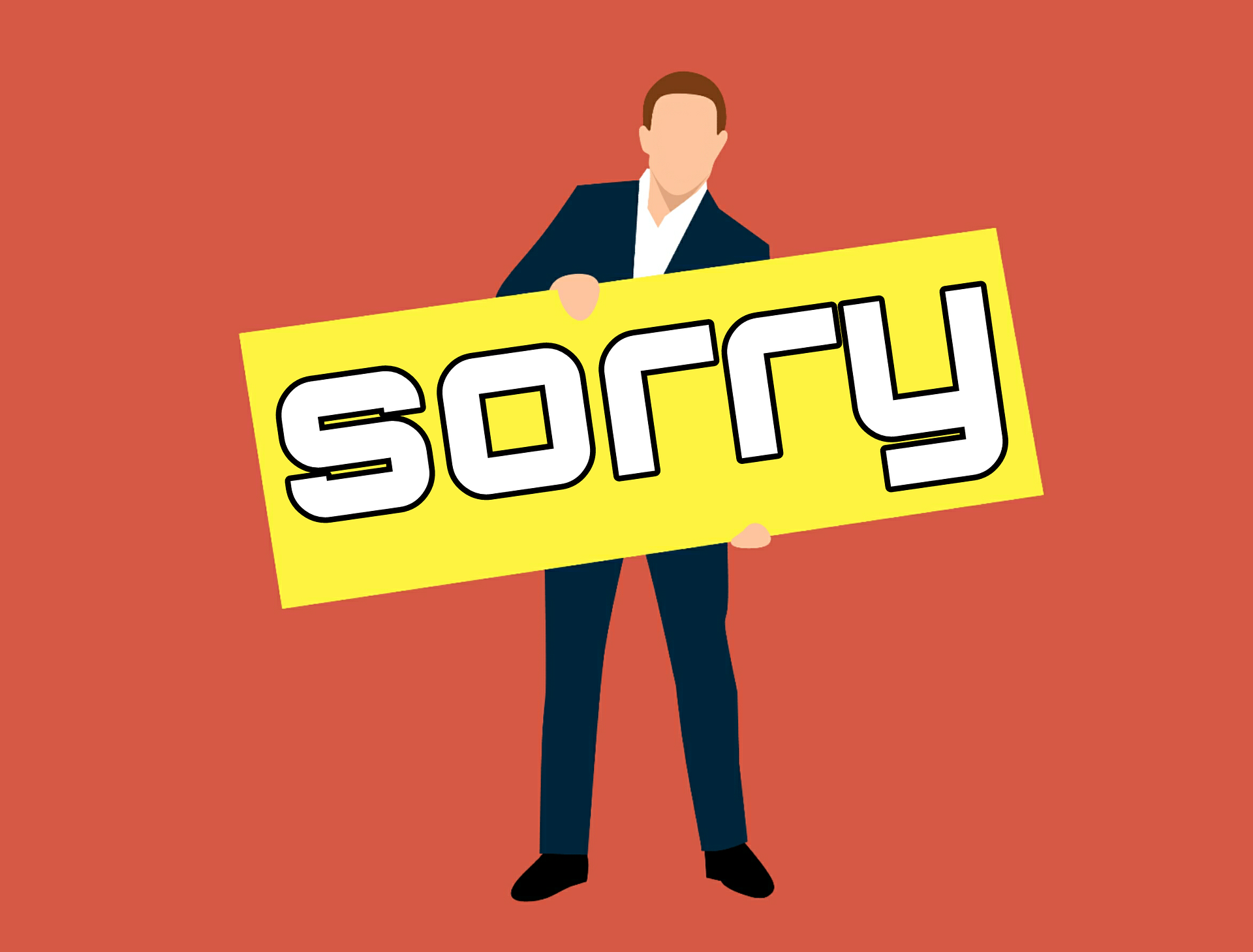Getting Guest Recovery Right (The LEARN Method of Guest Recovery)
Published April 7th, 2022
The ultimate goal of every restaurant is to satisfy and exceed the expectations of every single guest that walks through the door, turning them into loyal and returning patrons in the process. Such a level of perfection is an unrealistic goal, because, no matter how hard you may strive, it is impossible to please everyone.
There will always be people who are unhappy in all types of restaurants, and restaurant managers, and their customer facing employees, need know how to deal with unhappy customers, how to deescalate an an angry customer, and how to best recover a guest and make all of these guests feel like they’ve been heard and their issues has been properly resolved.
One of the best, easiest to teach, and simplest to remember methods for guest recovery, especially for an angry customer at a restaurant, is the LEARN method. LEARN is an anagram that stands for: Listen, Empathize, Apologize, Recover, Nurture. Each step in this process is explained below in greater detail, detailing why it is important and the effect that it has on the guests perception of the individual in front of them and, ultimately, on the effect it has on their opinion of the venue that that individual is representing. If you’re looking for an answer to “how would you handle an upset customer at the register?” then the LEARN method is a perfect step-by-step guide for this situation.
The LEARN Method

Listen
The guest who is talking has a problem, you are representing their point of contention and the source of their frustration. it is important to pay attention to the details and the nature of their complaint. Only by fully listening to the guest can you fully understand their problem.
Do not interrupt the guest whilst they are explaining their frustration. Make eye contact with them and give them your full attention. Allow the guest to get their full point across to you before responding to them. If needed, take notes whilst the guest is talking, especially if their issue is related to a food poisoning, assault, or theft that is said to have happened in your venue or on your property. These notes will be valuable later when relaying anything to the relevant authorities and when stories are retold. Note that if the complaint is as serious as food poisoning, theft, or assault you should politely interrupt the guest at the beginning so that you can obtain the materials needed to take proper notes of their account of the incident.

The guest who is talking has a problem, you are representing their point of contention and the source of their frustration. it is important to pay attention to the details and the nature of their complaint. Only by fully listening to the guest can you fully understand their problem.

Do not interrupt the guest whilst they are explaining their frustration. Make eye contact with them and give them your full attention. Allow the guest to get their full point across to you before responding to them. If needed, take notes whilst the guest is talking, especially if their issue is related to a food poisoning, assault, or theft that is said to have happened in your venue or on your property. These notes will be valuable later when relaying anything to the relevant authorities and when stories are retold. Note that if the complaint is as serious as food poisoning, theft, or assault you should politely interrupt the guest at the beginning so that you can obtain the materials needed to take proper notes of their account of the incident.
The guest who is talking has a problem, you are representing their point of contention and the source of their frustration. it is important to pay attention to the details and the nature of their complaint. Only by fully listening to the guest can you fully understand their problem.
Do not interrupt the guest whilst they are explaining their frustration. Make eye contact with them and give them your full attention. Allow the guest to get their full point across to you before responding to them. If needed, take notes whilst the guest is talking, especially if their issue is related to a food poisoning, assault, or theft that is said to have happened in your venue or on your property. These notes will be valuable later when relaying anything to the relevant authorities and when stories are retold. Note that if the complaint is as serious as food poisoning, theft, or assault you should politely interrupt the guest at the beginning so that you can obtain the materials needed to take proper notes of their account of the incident.

Empathize
Put yourself in the guest’s shoes. No matter how small their issue may seem, they have encountered a problem that has upset them enough for them to raise the issue with an employee or to ask to speak to a manager. They are looking for a resolution to their problem, but, often most of all, they want their problem to be recognized. That recognition is empathy.
Tell the guest that you have heard them and that you understand where they’re coming from. As you do this, reference the points that they made during their initial complaint so that they know that you listened to and understood their concerns.

Put yourself in the guest’s shoes. No matter how small their issue may seem, they have encountered a problem that has upset them enough for them to raise the issue with an employee or to ask to speak to a manager. They are looking for a resolution to their problem, but, often most of all, they want their problem to be recognized. That recognition is empathy.
Tell the guest that you have heard them and that you understand where they’re coming from. As you do this, reference the points that they made during their initial complaint so that they know that you listened to and understood their concerns.

Put yourself in the guest’s shoes. No matter how small their issue may seem, they have encountered a problem that has upset them enough for them to raise the issue with an employee or to ask to speak to a manager. They are looking for a resolution to their problem, but, often most of all, they want their problem to be recognized. That recognition is empathy.
Tell the guest that you have heard them and that you understand where they’re coming from. As you do this, reference the points that they made during their initial complaint so that they know that you listened to and understood their concerns.

Apologize
It is important to note that empathy comes before or with the apology. Apologizing without empathizing with the customer can give the impression that you or your establishment are brushing their issue aside with an apology. This can give them the impression that you do not wholly care about their issue and, ultimately, them. Apologies should be sincere and should directly address the guest’s concerns.
There are a few occasions where an apology shouldn’t be given. An apology amounts to an admission of guilt and should not be given for situations where you or the business could be considered legal liable, these situations include: accusations of food poisoning, and theft or assault by a restaurant employee. You should also not apologize when the guest is the one creating the issue, e.g. harassing employees or being loud and/or rude. It best to use your best judgement on whether to apologize to a guest in any given situation.

Apologize, don’t give an excuse. An excuse is a reason and it is never equitable to an apology. Providing an excuse instead of an apology can sometimes further anger a guest because the problem is not being owned and the excuse is not fitting what they expected.
It is important to note that empathy comes before or with the apology. Apologizing without empathizing with the customer can give the impression that you or your establishment are brushing their issue aside with an apology. This can give them the impression that you do not wholly care about their issue and, ultimately, them. Apologies should be sincere and should directly address the guest’s concerns.

There are a few occasions where an apology shouldn’t be given. An apology amounts to an admission of guilt and should not be given for situations where you or the business could be considered legal liable, these situations include: accusations of food poisoning, and theft or assault by a restaurant employee. You should also not apologize when the guest is the one creating the issue, e.g. harassing employees or being loud and/or rude. It best to use your best judgement on whether to apologize to a guest in any given situation.
Apologize, don’t give an excuse. An excuse is a reason and it is never equitable to an apology. Providing an excuse instead of an apology can sometimes further anger a guest because the problem is not being owned and the excuse is not fitting what they expected.
It is important to note that empathy comes before or with the apology. Apologizing without empathizing with the customer can give the impression that you or your establishment are brushing their issue aside with an apology. This can give them the impression that you do not wholly care about their issue and, ultimately, them. Apologies should be sincere and should directly address the guest’s concerns.
There are a few occasions where an apology shouldn’t be given. An apology amounts to an admission of guilt and should not be given for situations where you or the business could be considered legal liable, these situations include: accusations of food poisoning, and theft or assault by a restaurant employee. You should also not apologize when the guest is the one creating the issue, e.g. harassing employees or being loud and/or rude. It best to use your best judgement on whether to apologize to a guest in any given situation.
Apologize, don’t give an excuse. An excuse is a reason and it is never equitable to an apology. Providing an excuse instead of an apology can sometimes further anger a guest because the problem is not being owned and the excuse is not fitting what they expected.

Recover
A guest has complained because they have a problem severe enough to be brought to the manager’s attention, and they expect that problem to be fixed. Recovery is fixing that problem to a standard that is acceptable to the guest and the restaurant.
After going through the previous steps you will have an understanding of the guest’s complaint and a good feeling of how upset the guest is and what level of recovery suits their specific complaint and their level of upset. Recovery needs can vary from guest to guest and situation to situation, and it is important that managers lean on their previous experience in guest recovery to refine their response to the guest in front of them. It can also be helpful for owners, especially those of franchises and groups, to standardize how certain incidents are recovered; ensuring that recovery standards exist across the company so that guests are treated the same, no matter which venue they’re in.

A guest has complained because they have a problem severe enough to be brought to the manager’s attention, and they expect that problem to be fixed. Recovery is fixing that problem to a standard that is acceptable to the guest and the restaurant.
After going through the previous steps you will have an understanding of the guest’s complaint and a good feeling of how upset the guest is and what level of recovery suits their specific complaint and their level of upset. Recovery needs can vary from guest to guest and situation to situation, and it is important that managers lean on their previous experience in guest recovery to refine their response to the guest in front of them. It can also be helpful for owners, especially those of franchises and groups, to standardize how certain incidents are recovered; ensuring that recovery standards exist across the company so that guests are treated the same, no matter which venue they’re in.

A guest has complained because they have a problem severe enough to be brought to the manager’s attention, and they expect that problem to be fixed. Recovery is fixing that problem to a standard that is acceptable to the guest and the restaurant.
After going through the previous steps you will have an understanding of the guest’s complaint and a good feeling of how upset the guest is and what level of recovery suits their specific complaint and their level of upset. Recovery needs can vary from guest to guest and situation to situation, and it is important that managers lean on their previous experience in guest recovery to refine their response to the guest in front of them. It can also be helpful for owners, especially those of franchises and groups, to standardize how certain incidents are recovered; ensuring that recovery standards exist across the company so that guests are treated the same, no matter which venue they’re in.

Nurture
Once the guest’s issue is resolved the recovery process doesn’t stop. It is imperative that the manager checks back with the guest to show that the restaurant cares. If the guest will be returning at a later date for the compensation of their recovery, e.g. a free meal or bottle of wine, then you should take care to remember who they are so that you can recognize them on their return and provide them with special treatment. Nurturing a guest post-recovery can solidify their faith in your restaurant and turn them into loyal patrons.

To make sure they receive the best treatment for their recovery it is beneficial to tell them to book in advance and mention a special card that you gave them regarding this recovery. This way you can place them in the section of your best serve and the manager will know to pay them special attention. Nurturing can go a long way to turning a disgruntled guest into a loyal customer.
Once the guest’s issue is resolved the recovery process doesn’t stop. It is imperative that the manager checks back with the guest to show that the restaurant cares. If the guest will be returning at a later date for the compensation of their recovery, e.g. a free meal or bottle of wine, then you should take care to remember who they are so that you can recognize them on their return and provide them with special treatment. Nurturing a guest post-recovery can solidify their faith in your restaurant and turn them into loyal patrons.
To make sure they receive the best treatment for their recovery it is beneficial to tell them to book in advance and mention a special card that you gave them regarding this recovery. This way you can place them in the section of your best serve and the manager will know to pay them special attention. Nurturing can go a long way to turning a disgruntled guest into a loyal customer.
Once the guest’s issue is resolved the recovery process doesn’t stop. It is imperative that the manager checks back with the guest to show that the restaurant cares. If the guest will be returning at a later date for the compensation of their recovery, e.g. a free meal or bottle of wine, then you should take care to remember who they are so that you can recognize them on their return and provide them with special treatment. Nurturing a guest post-recovery can solidify their faith in your restaurant and turn them into loyal patrons.
To make sure they receive the best treatment for their recovery it is beneficial to tell them to book in advance and mention a special card that you gave them regarding this recovery. This way you can place them in the section of your best serve and the manager will know to pay them special attention. Nurturing can go a long way to turning a disgruntled guest into a loyal customer.

A Final Word: A Manager’s Challenge
Upset guests need to be tracked, ideally in a managers log. This is partially to see if there are any pattern or similarities in the complaints that could be permanently resolved, and also to keep track of potential repeat offenders. These people may be trying to take advantage of an establishment’s policies. These guests provide a problem for managers, not only because their actions lead to a loss in revenue, but also because of the frequency of the disruptions they can cause to the flow of the restaurant and the experience of other guests. Distinguishing between a customer who has high expectations and will provide insightful feedback and someone who is looking to take advantage can be a challenge. Such a skill is learnt through experience, but the result and the insight that can be passed on are invaluable.
Guest recovery can seem like a simple matter, but dealing with and listening to each complaint personally and individually is an important factor in it having a lasting effect on the customer and the business. If you’re looking to teach this method of guest recovery many prefer to do it by using it in examples of dealing with difficult customers in a restaurant.
By properly recovering an angry restaurant customer and nurturing a relationship with them, managers can gain key insights into where their customers think their venue is not hitting the mark and, thus, can help them to focus their efforts on improving the elements that most impact the customer experience in the customer’s eyes.
© DeliverLogic, Inc. 2024